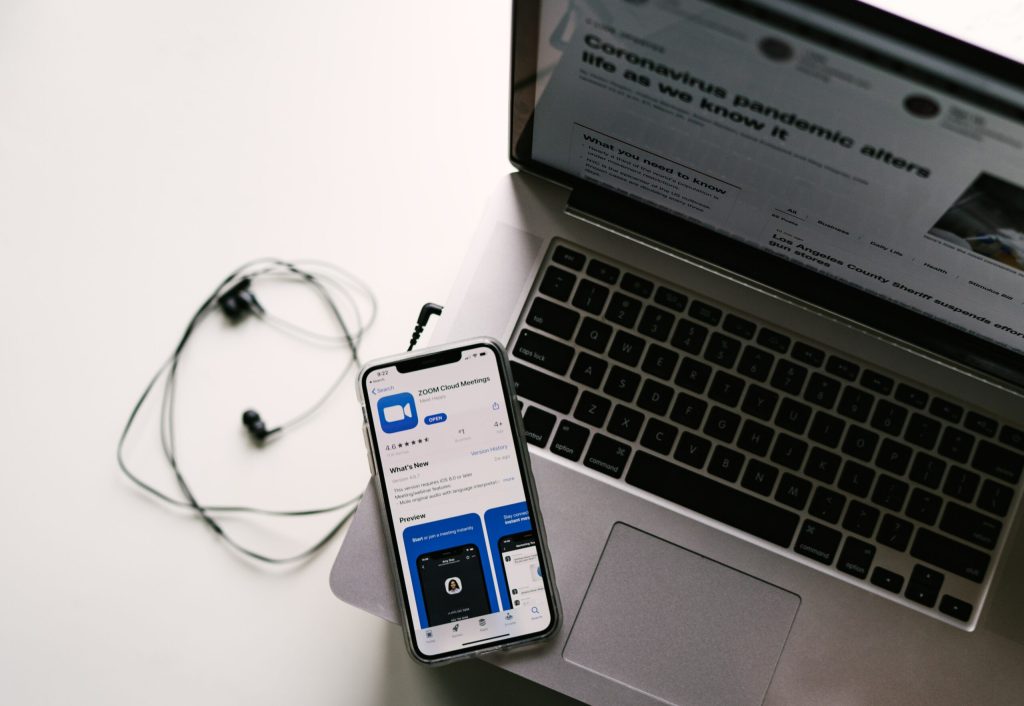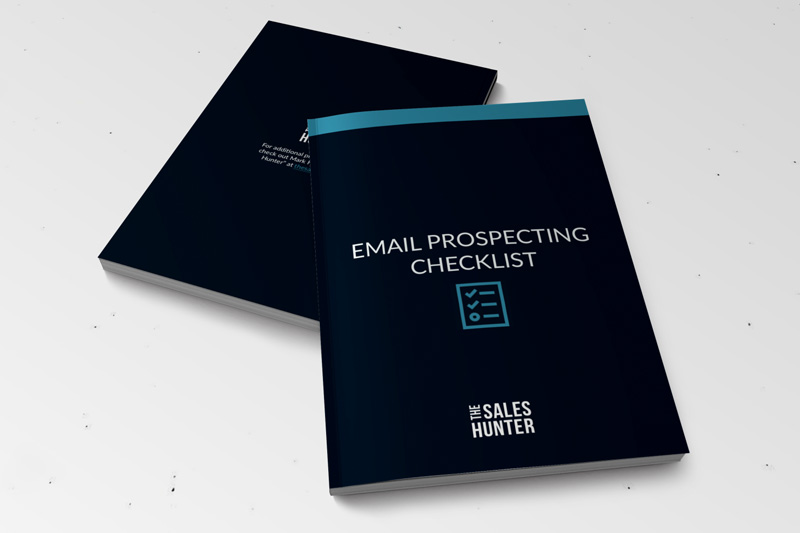Meridith Elliott Powell: Welcome to Sales Logic. The show where we dive into the strategies, share the tips, everything that you need to know to sell logically. I’m Meridith Elliott Powell, and I am here with my cohost Mark Hunter.
Mark Hunter: Hey, good afternoon, Meridith. It’s great to be with you. And don’t you always love Darryl Praill’s voice with VanillaSoft. There is energy in that voice, so thank you, VanillaSoft for being one of our sponsors, very much appreciate it.
Meridith Elliott Powell: Yeah, we love having them on board, really incredible company. And Darryl’s a really incredible guy.
Mark Hunter: We got a lot of good stuff planned today, man. We’ve got a great question that came in from South Africa.
I love that. We’ve got a great topic. We got a lightning round and of course we’ve added that fourth piece where we talk about a book. So we need to dig into the show. Mere, why don’t you walk us through? What are the things specifically we’re going to talk about?
Meridith Elliott Powell: Yeah, so always remember that we start this show by talking through one of your questions.
If you have a question for us, just reach out to our website saleslogicpodcast.com. Again, saleslogicpodcast.com, or just put it up on social media and use the #saleslogic. This is the way the show works. We’re going to roll through our question, cover a topic and the lightening round. And Mark, what we’re diving into today is our topic is sales presentations in a virtual world.
How do you differentiate yourself? Establish your credibility and land the deal? The lightening round is going to be the top do’s and don’ts of great sales presentations. But let’s go ahead and kick off with this week’s question. It comes to us from, as you said, Cape Town, South Africa.
“I am currently a sales professional for a large manufacturing firm in Cape Town, South Africa. I love my job and consistently exceed my goals. I want to become a sales leader. What tips do you have for me?” This comes from Ciarra and it actually came to us on LinkedIn. So Mark, why don’t you go ahead and kick us off.
Mark Hunter: First of all, you got to start thinking and acting like a sales leader and regardless whether or not you’re in that position or just whatever, you lead, this means you act and behave as if you were a sales leader. Here’s the piece that you stop and have to ask yourself this question, who is following me now? Who am I leading now? And what am I doing?
The two main components that I look in a leader are A: am I able to train my people? In other words, can I train my customers? Am I able to educate my customers? And B: do I leave them in a more positive state after I get done with them? So those are two things that you really have to be doing as a leader, as a salesperson, to even be in the running to be considered somebody who could be a sales leader of a sales team. What about you?
Meridith Elliott Powell: I think the first thing that you need to do is really spend some time with the sales leader and think about if this is something you really want to do.
I think that Mark and I both have experienced more than a few sales professionals who have been great at sales then moved into a sales leadership position and it wasn’t exactly what they needed to do. What made you great as a sales professional was really being out with customers and landing the deal.
You got to give some of that up when you become a sales leader, because your priorities really shift to starting to investing in others and motivating coaching and developing them to be able to want to do it. So I’d really suggest a really good next step for you would be to ask to spend some time with some of the sales leaders around you both to learn what they do so you can see exactly what the job is, but at that point determine if that is really what you want to be doing.
Mark Hunter: One of the big mindsets that I find new sales leaders have a problem with is understanding who is it that they lead. They still think they lead the customer. No, your account manager, your account exec whoever it is, they’re the ones who lead the customer. Your role is to lead them and that means you can’t be the one who swoops in the ninth inning with two outs and you come in to close the deal. You can’t be the one who comes in and saves the day from the salesperson or sales- no, your job as a sales leader is to help uncover incremental opportunities before they’re known to other people.
That’s one of the key attributes that I find too many sales leaders don’t seize upon. It’s one thing that I stress when I’m working with new developing sales leaders is to get them to put a challenge before them, to say that your role is to help develop and find and identify incremental sales opportunities that are not known to the rest of the organization.
Then you’re really doing your job. Now, you’re bringing new food to the table.
Meridith Elliott Powell: Yeah, I would add that. I think that you need to start developing and investing in people. Now don’t wait until you get the leadership position. Prove you can do the job, before you take over the job. Again, being good at sales is about being an individual producer.
Being a sales leader is: can you develop the people around you? To be as good, if not better than you are at sales. And in circling back to what Mark said at the beginning is that you want to. Just start doing the job before you get the job. And one of the ways to prove that you can do that is you want to develop a few people around you to get even better at sales.
So good luck, Ciarra, I know you will make an amazing sales leader and this profession always needs really good sales leaders because goodness knows that it’s the better the sales leader, the better the team will be. But Mark, how about we go ahead and jump into the topic for today.
Mark Hunter: It’s a great topic. Sales presentations in a virtual world. How do you differentiate yourself? Establish credibility and land the deal. It’s virtual, so I’m just going to send myself in as an avatar. Why don’t you jump in first, Mere?
Meridith Elliott Powell: Yeah, I love this topic because I’ve been working so much in this area lately, really trying to help organizations move into this virtual world of making sales presentations.
And I think the first place that you need to start is by understanding that you need to work even harder, in my opinion, to build relationship, build connection on the front end. You’re going to have to establish your credibility. You’re going to have time to make your pitch and to do all those types of things.
But if you want people to listen to you, you have to begin by listening to them and remember that people virtually or in person are going to buy from you because you understand them not because they understand your product or service. So really begin the sales presentation by spending time in learning about them, by getting, doing some things on the front end that are investing in engaging your audience before you go right into your pitch. Bring them into the sales presentation.
Mark Hunter: Yeah. You bring up a line that I love to use that as your reputation arrives before you do, this is the way it is in every step of the sales call, your reputation arrives before you do, because no customer is going to talk to anybody without first checking you out online. Let’s stop and take a step back because if we’re trying to: how do I differentiate myself?
How do I establish credibility? It’s about authenticity. Authenticity more than ever is so critical in a virtual world because we are living in a more and more of a jaded society, a warped society because there’s so much noise out there and that means being authentic. And you and I have used it, this word, we use it a fair amount, I almost hate saying, but integrity. You have to have that level of integrity established marketplace before because otherwise all you are is just a poster child for some presentation and there better be some substance behind it.
Meridith Elliott Powell: I’m going to add that I think that you need to really get to know your audience before a virtual presentation.
Understand that in virtual while I can still see you can still see me. There’s more of a distance. And when there’s more of a distance, your audience’s uncertain, they’re unsure and they want to make sure they’re making the right decision. So that means that your presentation has to speak specifically, as to speak specifically to them, you need to know their customers. You need to know their challenges. You need to know the makeup of their organization and your presentation better be laced with some of those nuggets to show that you have truly customized the presentation and you really understand who they are and what they’re looking for. People connect to you, again, when they feel like they’ve been heard and when the presentation feels customized to their particular needs, that really makes a difference.
Mark Hunter: And that means the questions have got to be engaging to them.
And that’s right there. We have to double down on our level of engagement with the other party. We might be doing it by way of Zoom, webEx, Microsoft teams, or maybe a telephone call. I have observed too many online presentations that really could just as well be delivered by way of a YouTube video, because they’re basically one-way communication. We have to be engaging, but what does this mean? This means right up front, you have got to– and Mere you’ve been talking about it in terms of really understanding who is that customer?
Before you get into the conversation, what drives them? What motivates them? We have to do more homework coming into a virtual presentation, a virtual sales call, than I think we had to do in a live sales call face to face, just because it moves faster and we gotta be ready much earlier.
Meridith Elliott Powell: Yeah. I would also say that you need to really learn the art of storytelling. I think storytelling is always really important in presentations. It has a big place in the middle of a virtual presentation. You remember that your audience can Google most of the things about your product or service.
So don’t worry about all the little bells and whistles. They’ve done their homework too. They know that. What are the stories and how can you use stories to give them good examples and establish the credibility that you need to really make them see, oh, I understand how the product or service would solve our particular solutions or our particular challenges.
So when we go into a sales presentation, you want to have a strong open, you want to establish your credibility right off the bat. You want to speak specifically to their challenges and their concerns, and then really use story to back up your point. That story is what makes you memorable and good stories are what make people truly deeply understand what it is that you’re trying to talk about with some of the bells and whistles that you’re making with your sales presentation.
Mark Hunter: Yeah. And there’s several key components to a good story. One, it has to be relatable and it has to be your story. Now it isn’t necessarily that it’s your story, but you have to tell it in your words, because it becomes much more believable. You have to be able to tell it in a way that the customer can put themselves into the story.
If they can’t put themselves into the plot, into the story, there’s no hook. All you’re doing is just watching a Netflix show. They have to feel part of it. And if you think about it, you watch a good movie, you watch a good show, you can literally put yourself into it. That is key. And the final piece is that it has to connect back to the outcome and the customer is the one that has to understand what the outcome is. Not for you to share the outcome, it’s for the customer to know what the outcome is. And when they say what the outcome of the story is, think about it, then you’ve hit home. Then the story becomes both saleable and it becomes memorable.
Meridith Elliott Powell: Yeah, and last but not least, I’ll tag one more on- you better have a call to action. Don’t leave that meeting without the very next step of what’s going to happen, who’s going to do what, and when the next reach out on your part is going to be. So I think that sales presentations, as much as we don’t like it, we should plan for them. We should structure them. We should role play them. And when they go, we should do an autopsy and see why they go well and when they don’t we should do an autopsy and see what didn’t work. So it’s just consistent. It’s consistently proven. But, Mark, you ready to talk about this week’s book and author?
Mark Hunter: Yes. Let’s talk about our good friend, Bill Cates, who you– every time you golf with him, you beat him handily, correct?
Meridith Elliott Powell: I’m sure Bill will really appreciate you sharing that.
Mark Hunter: Hey look, you and I have never golfed, but I already know that you would probably beat me pretty much hands down, knowing how much you play golf.
So anyway, I’m going to leave it there, but I’ll tell you what Bill’s written several great books. His most recent book, Radical Relevance is I think his best book because it really talks about all of his pieces about referrals, cause he’s known as the referral coach. He really makes it really relevant.
What were some pieces that stuck out to you from the book?
Meridith Elliott Powell: Here’s some, here’s a copy of the book and you can find it on Amazon. Again, the author is Bill Cates. I’ve loved this book. I have actually read it twice. I was lucky enough to that Bill gave me a copy of it. But what I really loved about it is that it said so much to Bill.
He’s written about, has been about, almost after you closed the sale, getting the referral, but in Radical Relevance, he really dives into what you need to do to craft your message so that the customer feels like they can’t live without you. And the book is really full of– it’s very easy to read it’s in it really short paragraphs, but he always gives you an action and something to do.
So the book is really practical. He tied it back a lot to his online course, which you get access to if you read the book, so it’s a no brainer not to take a shot at it.
Mark Hunter: I’m thinking you got a free copy of the book cause you beat him in golf. I did not get a free copy of the book from Bill.
I had to buy it and I still did videos with him for the book on YouTube. So clearly, I guess there’s something, I need to up my golf game.
Meridith Elliott Powell: Radical Relevance is just a great read and I think it– Bill printed it before– he published it before COVID. But it is probably even more relevant post COVID because being relevant is really the key right now. It is truly what matters.
And what’s going to differentiate you and, in the marketplace. With that, it is probably time to get into the lightning round, the do’s and don’ts of great virtual sales presentation. Go Mark.
Mark Hunter: Hey, first one out of the shoot is make sure you’re engaging the customer right from the start. I like to say don’t talk for more than 20 seconds without engaging the customer.
Meridith Elliott Powell: Yeah, I am going to say, don’t rely on your PowerPoint or a visual aids. They are there to support you, but they are not the presentation.
Mark Hunter: I’m going to say, if the customer demands a copy of your presentation ahead of time, fine. You send it to them 30 seconds before you meet.
Meridith Elliott Powell: I would say don’t talk the entire time, make sure that at least every 8 – 10 minutes you have some way to engage the audience, that is listening to you so that it’s a bounce back and forth.
Mark Hunter: To add to that, make sure you take whatever they share with you and ask them a follow up question because in any sales presentation the best information shared by the customer is not going to be the first comment. Going three levels deep, you drill down deep to get to the good stuff.
Meridith Elliott Powell: Yeah. And I’ll follow up on that. Don’t share information they don’t need. Every customer has pain points, usually I say two to three pain points, and your presentation should solve their most urgent needs. Don’t give them information about your product or service, however sexy you believe it is.
Don’t include it there, keep it really focused on what their urgent needs are. You can offer it as more information later and let them know you have more to share, but keep it focused.
Mark Hunter: You stole that one from me because I was going to say if your sales presentation is a demo, that means you do not demo every aspect of it. You keep it as short and as tight and only share what the customer absolutely needs to see.
Meridith Elliott Powell: Yeah, absolutely. I would say that don’t make the mistake of not looking like your audience. If you are speaking in front of a younger group, make sure that somebody in your sales presentation is reflective of their age.
If you’re speaking to a very diverse group, make sure that you have a group presenting to them that looks like them. People want to know that you understand them and one of the ways that we do that is to present, a diverse look, if that’s what they’re looking for. At the flip of that, if it were not a diverse group, I would probably go with that presentation look as well.
Mark Hunter: I’m going to add that, make sure that you engage them all the way through. And here’s one of the ways that you do this is by working into your presentation elements or parts that they’ve shared with you in previous conversations. What does that demonstrate? It demonstrates what’s going on with them.
Why don’t you share one more and then I’ll go ahead and shut it down?
Meridith Elliott Powell: Yeah, I would say that, make sure that you do a role play. That you do plan and that you do structure it. You go in there, well-rehearsed knowing what you’re doing, so well-rehearsed that you can be really natural about it.
Never wing a sales presentation.
Mark Hunter: Again, you stole one from me because my line is “the best sales presentation is the one never given,” because you know your stuff so well, so good that you don’t even need a presentation. With that, hey, let’s go ahead and shut things down. I want to say thank you for listening to Sales Logic this week.
If you like what you hear, subscribe, rate, and review the show on your favorite podcast app. If something we’ve said has earned you a single dollar, consider telling a friend about our show. It’s how we grow to help you grow. I’m Mark Hunter.
Meridith Elliott Powell: And I’m Meridith Elliott Powell. Remember
Mark Hunter: when you sell with confidence and integrity-
Meridith Elliott Powell: uncertainty suddenly becomes your competitive advantage
Mark Hunter: and the sale becomes logical. We’ll see you next week!
Copyright 2020, Mark Hunter “The Sales Hunter” Sales Motivation Blog. Mark Hunter is the author of A Mind for Sales and High-Profit Prospecting: Powerful Strategies to Find the Best Leads and Drive Breakthrough Sales Results.













One Response
Big MNCs and startups pitching the same type of product( for example, a smartphone with similar features) to the ocean of customers through the virtual presentations: How would you create authenticity towards the customers who have various choices of products/various options to buy from?